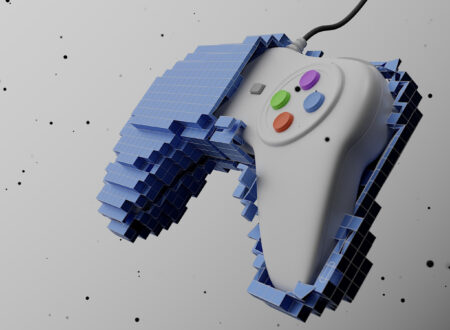Introduction to the world of video games
Welcome to the captivating world of video games, where pixels and polygons come alive in vibrant universes. From pixelated adventures on retro consoles to sprawling virtual worlds that connect millions, gaming has transformed how we interact with technology and each other. It’s more than just a pastime; it’s an integral part of modern culture. As we journey through the evolution of gaming, we’ll explore its profound impact on society, art, and social interactions. Buckle up as we take a look at how these interactive experiences have shaped our lives in ways we never imagined!
The early days of gaming and its impact on society
The early days of gaming began in the 1970s with simple arcade machines. Titles like Pong and Space Invaders captured players’ attention, drawing them into a new form of entertainment.
These games weren’t just about fun; they fostered social interactions. Friends gathered around machines, competing for high scores and sharing strategies. This laid the groundwork for a community that would grow exponentially.
Home consoles emerged soon after, bringing gaming into living rooms. Families bonded over games like Atari’s Adventure, making it a shared experience rather than an isolated pastime.
As technology advanced, so did perceptions of video games. Critics often viewed them as frivolous distractions while others recognized their potential to inspire creativity and problem-solving skills among players.
Through these shifts, gaming steadily carved out its place in society—transforming from mere novelty to a significant cultural force shaping how we connect and engage with one another.
Advancements in technology and the rise of console gaming
The landscape of gaming transformed dramatically with technological advancements. The introduction of 16-bit consoles in the early ’90s marked a new era. Suddenly, graphics became richer and gameplay more immersive.
As hardware evolved, so did game design. Developers began to explore storytelling and character development like never before. Players found themselves captivated by intricate narratives and complex characters.
The rise of CD-ROM technology further pushed boundaries, allowing larger games with high-quality audio and video. Iconic franchises emerged during this time, creating lasting legacies that resonate today.
With each new console generation came innovations such as online multiplayer capabilities and virtual reality integration. These breakthroughs changed how players interacted with games—and each other.
This evolution didn’t just affect gaming; it reshaped our living rooms into entertainment hubs where friends gathered for shared experiences. The impact was profound, influencing everything from social dynamics to family bonding moments around a screen.
The introduction of online gaming and its effects on social interactions
The advent of online gaming transformed the landscape of player interactions. No longer confined to local gatherings, gamers connected across vast distances. Suddenly, friends and strangers alike could team up or compete in virtual worlds.
This shift encouraged collaboration and communication skills. Many developed lasting friendships that transcended geographical boundaries. Voice chat features allowed for real-time strategy discussions, enhancing teamwork dynamics.
Yet, this new form of interaction also brought challenges. Some players struggled with social anxiety or toxicity within communities. The anonymity of the internet sometimes led to negative behaviors that impacted group cohesion.
Despite these hurdles, online gaming fostered unique social ecosystems. Players found support groups and clubs centered around shared interests beyond just gameplay—creating a vibrant culture rooted in community engagement.
The influence of gaming on popular culture, music, and fashion
Video games have woven themselves into the fabric of popular culture, influencing everything from music to fashion. Iconic soundtracks and themes resonate beyond screens, inspiring artists across genres. Whether it’s a catchy tune from an indie game or an orchestral score for a blockbuster title, gaming music has become a staple in playlists worldwide.
Fashion also bears the mark of gaming’s influence. Characters like Lara Croft and Mario have inspired clothing lines and merchandise that reflect their unique styles. Cosplay events draw fans who express their admiration through creative costumes, blending artistry with fandom.
Moreover, video games have permeated language and social trends. Phrases like “level up” or “game on” find their way into everyday conversation. This cultural crossover shows how deeply embedded gaming is in our lives today, shaping not only entertainment but also self-expression and identity among diverse communities.
The future of gaming and its potential for further societal impact
The future of gaming is an exciting frontier, teeming with possibilities. As technology evolves, so do the experiences we can create and share.
Virtual reality (VR) and augmented reality (AR) are set to transform how players interact with digital worlds. Imagine stepping into a game where your living room becomes a battlefield or an enchanted forest. The immersion could redefine entertainment.
Moreover, advancements in artificial intelligence are paving the way for smarter NPCs that adapt to player behavior, enhancing storytelling like never before. Each player’s journey will be uniquely tailored.
Socially, gaming communities continue to grow beyond borders. Cross-platform play allows friendships to flourish among people who might never meet otherwise.
With these innovations comes responsibility too—how developers address issues like inclusivity and mental health will shape societal values moving forward. Gaming has always been about connection; its potential impact on our culture remains boundless as we look ahead.
Conclusion
The journey of video games has been nothing short of transformative. From simple pixelated graphics to hyper-realistic worlds, gaming continues to evolve at a rapid pace. Each era brings new possibilities that not only enhance gameplay but also intersect with various facets of our lives.
As we look ahead, the potential for virtual and augmented reality opens doors to experiences we can scarcely imagine today. Gaming is poised to further influence education, therapy, and even social change as technology advances.
Video games are more than just entertainment; they are cultural phenomena that shape how we connect with each other and view the world around us. They offer a window into diverse narratives and foster communities across borders. The future promises exciting developments that will undoubtedly leave their mark on society in profound ways.




